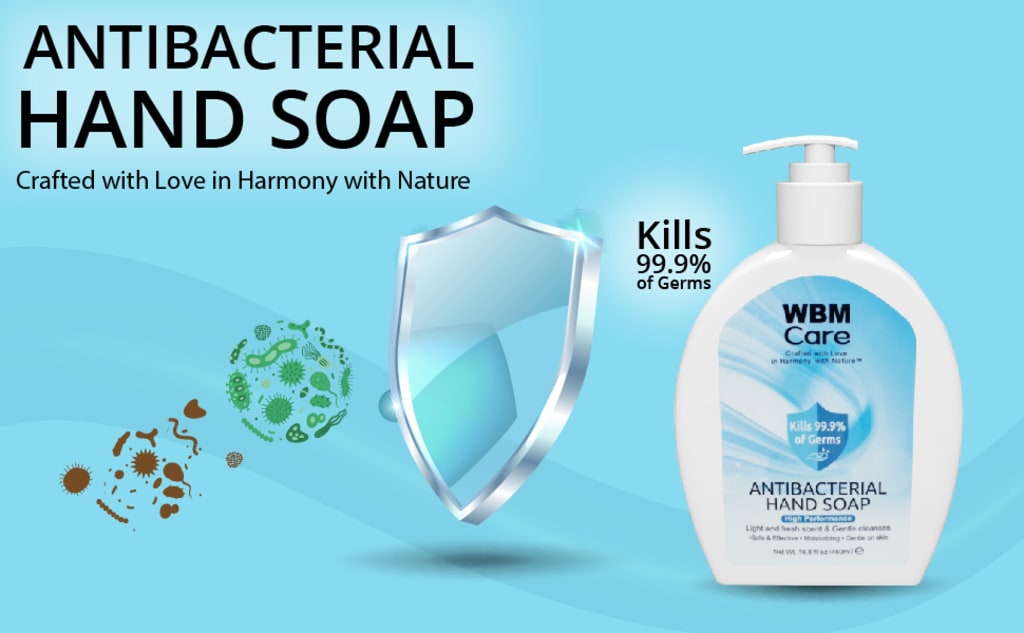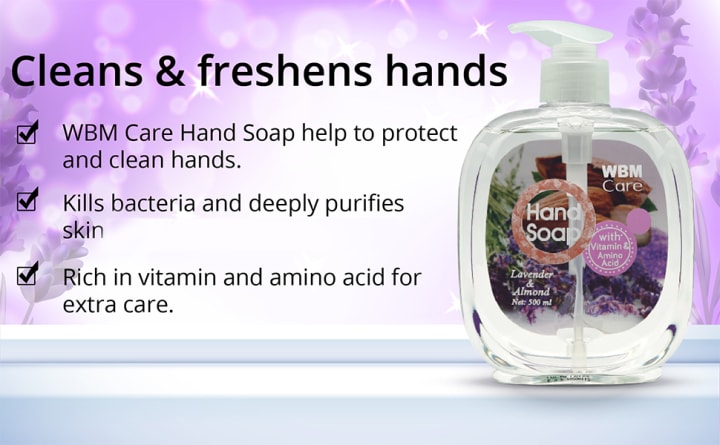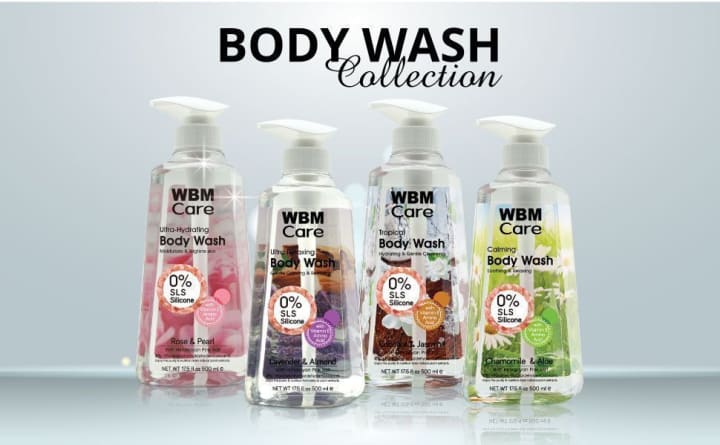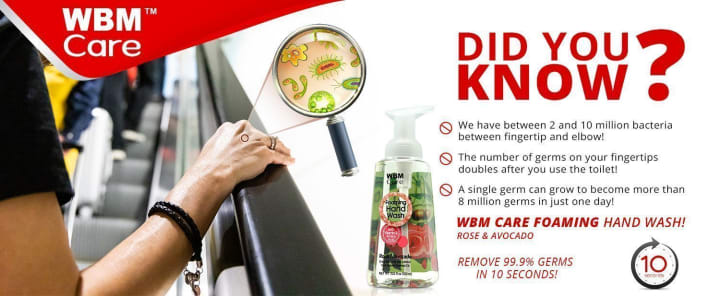How Does Antibacterial Hand Soap Different from Regular Soap?
Antibacterial hand soap contains active antimicrobial ingredients, which means it works to kill bacterial microorganisms to stop their growth.

What is Hand Soap?
Hand Soap is a combination of fats or oils, and water. When these ingredients are combined in the right amounts, they become soaps through a chemical process called saponification.

Antibacterial Hand Soap
Antibacterial hand soap contains active antimicrobial ingredients, which means it works to kill bacterial microorganisms to stop their growth. The human body actually needs bacteria to maintain a healthy environment for the skin, so while these products can be effective in killing harmful bacteria, it's important that they are not overused to the point that they also kill bacteria. The active antibacterial agents in antibacterial hand soap are also known to dry out the skin.

It is important to note that the United States Federal Drug Administration (FDA) recently evaluated the efficacy and threats posed by me and found that there was insufficient evidence to prove both the effectiveness and the threats posed by the chemical.
Regular Hand Soap
In contrast, regular soap does not contain active antibacterial ingredients. Rather, it works by lowering the surface tension of water, removing oils, dirt, and other forms of grime from your hands, and allowing them to be washed clean. Additionally, due to the lack of antibacterial ingredients, regular soap will not kill the aforementioned good bacteria residing on your hands, allowing a healthy and balanced bacterial environment to continue to exist. If you prefer to use normal soap instead of antibacterial soap

Ultimately, both forms of soap are effective for hand washing. Although generally more expensive, antibacterial soap provides some peace of mind in that the user can feel more confident that bacterial germs are being completely eradicated rather than eliminated. Conversely, excessive use of antibacterial products can lead to the destruction of the good bacteria that live on your hands, so caution should be exercised in this regard. It should also be noted that bacterial germs and viral germs are different, so an antibacterial hand soap has no more impact on killing viral germs than a regular hand soap.
Difference Between Hand Soap and Body Soap
Soap labeled "hand soap" often contains stronger ingredients, as it is meant to remove germs, grease, and dirt from your hands.
Many conventional hand washes are heavily scented, and those in liquid form come in a rainbow of colors, compared to most body washes, which are pearly white and lightly scented.

Natural soaps do not use artificial fragrances or chemicals in their recipes. Instead, they use natural ingredients to cleanse and moisturize, like tea tree oil and Shea butter. But those differences don't matter much when it comes to germs: hand soap and body soap kill nasty bugs.
How Does Hand Soap Kill Germs?
Soap does not actually kill viruses, since viruses are not alive. Some bacteria and viruses have lipid membranes that keep bacteria alive and allow viruses to infect cells. What soap does is coat every inch of your hands with its pin-shaped molecules, each with a water-loving head and an oil- and grease-loving tail.

When these molecules come into contact with germs, the oil- and grease-loving tails engage the germs' lipid membranes and tear them apart, killing bacteria and inactivating viruses. The remnants of germs are trapped in tiny soap bubbles called micelles, which are washed away when you rinse your hands.
Is Antibacterial Soap Better?
Some benefits of antibiotic soaps are that you can find them in most stores and they can kill dangerous bacteria. However, the downsides are that they can also kill healthy bacteria on the skin. Its added chemicals can strip away natural oils and make your skin dry. Also, using antibacterial soap can give a false sense of cleanliness and people may wash less frequently.

Plain soap is recommended for non-healthcare settings in public and at home unless antibacterial soap is recommended by a doctor. Antibacterial soaps are no more effective at killing germs outside of a thoroughly disinfected healthcare environment.
Soap Bar Vs. Liquid Soap
Liquid soap is preferable to bar soap for cleaning hands. It is easier to use and generally does not spread germs from person to person if the soap is shared. Additionally, a moisturizing ingredient is often added to body washes so that frequent hand washing does not dry out the skin.

Bar soaps are less recommended because germs can grow on the surface and spread easily between people. It can be used at home if no one has a skin infection, but public places should not promote the use of bar soap.
What About Hand Sanitizers?
Hand sanitizer can trick people into thinking they don't have to wash their hands as rigorously or as frequently. When soap and water are not available, using a 60% alcohol hand sanitizer can be an effective alternative.

Hand sanitizer is a good antimicrobial, but it does not kill all germs and is not recommended when hands have visible dirt or oil.
About the Creator
Muhammad Asif
I'm a professional writer...






Comments
There are no comments for this story
Be the first to respond and start the conversation.